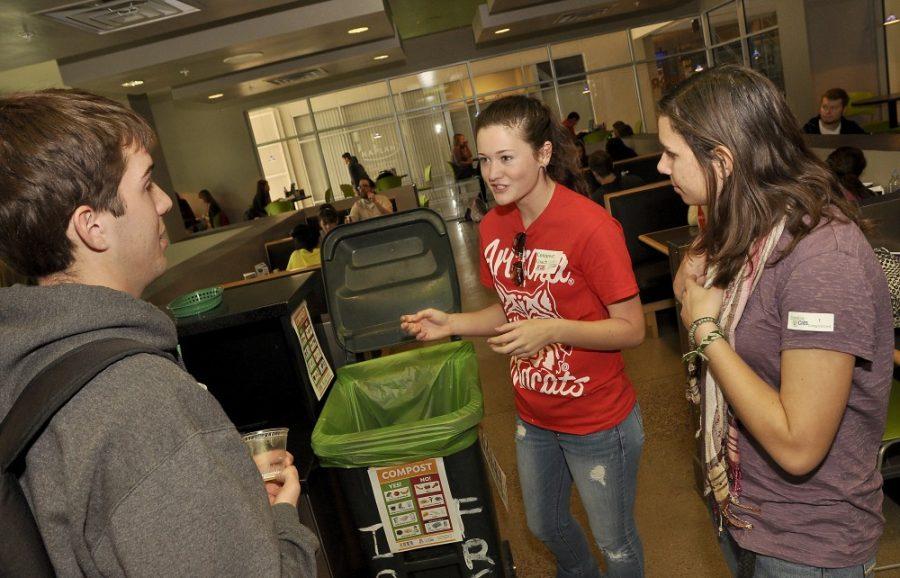A three-week long instructional project that began on Tuesday will teach students about composting.
The sustainability club, Compost Cats, is spearheading the project in coordination with Dining Services. Chet Phillips, a Ph.D. student and the project’s supervisor, said that for the next three weeks volunteers will act as “compost coaches” at various restaurants in the Student Union Memorial Center. The coaches will be standing by the new composting bins at Sabor, Three Cheeses and a Noodle and Cellar Bistro to teach students what food they can and cannot put into compost.
Phillips said the focus of the project is to potentially save tons of waste from going into landfills and, in the process, save money for the union. The way this works, he said, is that instead of the waste going to the landfills, the raw material from the bins is collected by the Compost Cats, brought to the new UA garden slightly north of the Highland Avenue Parking Garage, then turned into compost. The food takes about three to four months to actually turn into compost, he said.
Composting the food saves money because the union does not have to pay the costs of transporting the waste to landfills around the area, he said.
“It’s a great cause, it helps the environment and is really good for growing vegetables,” said Hollie Mills, a microbiology junior and a volunteer for Compost Cats.
The project’s goal, Phillips said, is to increase sustainability by keeping tons of waste out of landfills and allowing the waste to go back to the earth.
The UA Green Fund financed the project’s nearly $60,000 budget. However, Phillips said he hopes it will be financially self-sustaining one day.
“This is the student government at work,” he said. Compost Cats is a club within the Associated Students of the University of Arizona, the governing body for undergraduate students.
Cam Adamson, an economics senior and student lead at Sabor, said he thinks the project is great.
“I think it’s good that the union is being proactive and trying to help the environment and be more sustainable.”
Other Sabor employees said they are happy to be a part of the new project.
“I think it’s good they’re doing composting because the recycling ends up going in the trash anyway,” said Katie Netzel, a junior studying creative writing and linguistics.
Although the project has only emerged in three restaurants in the student union, Phillips said the ultimate goal is to have composting bins throughout union restaurants, including at the Park Student Union.









